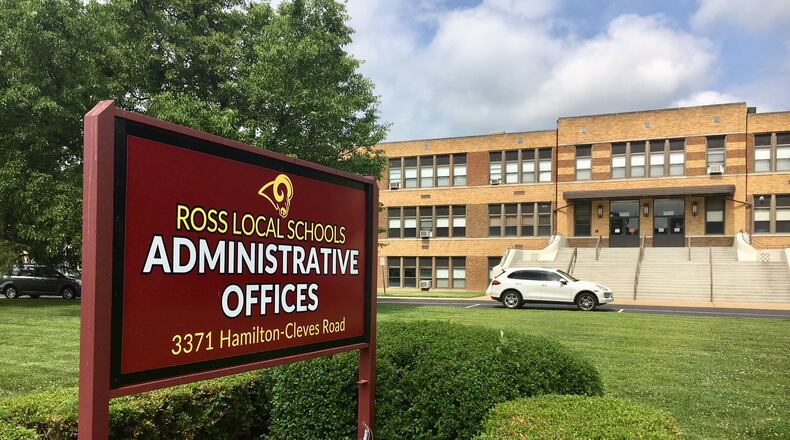Ross Schools is seeking an earned income school tax hike from its residents.
Voters in this largely rural Butler County community will decide on a 0.5 percent earned income tax on Nov. 6.
Initially, Ross was among the six Butler County school systems planning to form a taxing district for the proposed 10-year, 1.5-mill security tax on the Nov. 6 ballot.
But Ross officials later backed out of the group — which now includes Hamilton, Fairfield, Edgewood, Monroe and New Miami schools — citing their own local needs for a variety of school services beyond the single-focus, legally restricted security tax that under Ohio law can only be used for school safety or student mental health counseling.
Having both the earned income tax and a school security tax on the same ballot would have been self defeating, said Ross officials.
If approved by voters, Ross officials said the 0.5 percent earned income tax would fund security upgrades in the 2,800-student district as well as restore all high school busing and cover other operational costs.
Ross already has a permanent .75 percent earned income tax helping to fund the largely rural school system. The school taxing option is rarely used among Ohio’s 613 public school districts and largely favored by bedroom communities with relatively small business tax base.
An earned income school tax is assessed against salaries, wages, and self-employment earnings only. All other types of income — such as pensions and interest income — are excluded from the tax.
Scott Gates, superintendent of Ross Schools, said the district has a decade-long record of financial frugality and he hopes that helps to sway voters to support the earned income tax increase.
“This district has not been on the ballot since 2008, which is a true testament of excellent financial stewardship,” said Gates.
“The funds from this levy would allow us to continue with the wonderful traditions that make this district what it is and move forward with innovation, creativity and the quality of education our students need to be successful in this ever-changing world,” he said.
In recent years, Ross Schools has consistently scored among the highest in the state’s annual report card rankings among all Southwest Ohio school systems. The most recent state rating saw the district earn an overall grade of “B,” while no Butler County district earned an “A.”
Ross Schools parent Lynne Rivera backs the proposed tax hike, saying, “what is even more impressive, is that Ross has continued this tradition of excellence while spending less than the state average for classroom instruction and non-classroom expenditures.”
“They have used taxpayer funds wisely and continued to operate without a deficit even though state and federal funding has decreased substantially,” said Rivera.
About the Author
